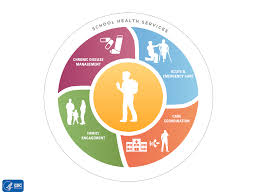
Breaking Borders for Better Health: International Patient Care Connecting Global Healthcare
International Patient Care: Bridging Borders for Health
In today’s interconnected world, seeking medical treatment abroad has become a viable option for individuals seeking high-quality healthcare services. International patient care has emerged as a bridge that connects patients with renowned medical institutions and expert healthcare professionals across the globe.
International patient care goes beyond geographical limitations, offering individuals access to advanced treatments, cutting-edge technologies, and specialized medical expertise that may not be available in their home countries. This global approach to healthcare has revolutionized the way patients can address their medical needs.
The Benefits of International Patient Care
One of the primary advantages of international patient care is the opportunity to receive world-class medical treatments. Many countries have established themselves as hubs for specific specialties, such as cardiac surgery, orthopedics, or cancer treatment. Patients can benefit from the expertise of highly skilled physicians who are at the forefront of their respective fields.
Moreover, international patient care often offers shorter waiting times compared to some countries’ healthcare systems. This prompt access to treatment can be crucial for individuals facing urgent or time-sensitive medical conditions.
Affordability is another key factor that attracts patients to seek treatment abroad. In some cases, medical procedures in other countries can be more cost-effective compared to domestic options. This affordability does not compromise the quality of care but allows individuals to receive top-notch treatments at a fraction of the cost they would incur in their home country.
The Importance of Comprehensive Support
Embarking on an international healthcare journey can seem daunting, but reputable international patient care providers offer comprehensive support throughout the entire process. From initial consultations and treatment planning to travel arrangements and post-operative care, these providers ensure a seamless experience for patients and their families.
Language barriers are often addressed through professional interpreters who facilitate effective communication between patients and healthcare providers. Cultural sensitivities are also taken into account, ensuring that patients feel comfortable and respected throughout their medical journey.
International patient care providers assist with logistics, including travel arrangements, visa requirements, and accommodation. They understand the importance of minimizing stress and allowing patients to focus solely on their health and recovery.
Building Trust through Accreditation
Trust is a critical element in international patient care. Reputable providers collaborate with internationally accredited hospitals and clinics to ensure the highest standards of medical care. Accreditation ensures that healthcare facilities adhere to strict quality protocols, patient safety guidelines, and ethical practices.
International accreditation bodies, such as the Joint Commission International (JCI), assess healthcare institutions based on rigorous criteria. This evaluation process guarantees that patients receive treatment in facilities that meet or exceed global healthcare standards.
The Future of International Patient Care
The field of international patient care continues to evolve as new technologies emerge and medical breakthroughs occur worldwide. Telemedicine, for example, has become an integral part of international patient care, allowing doctors to provide remote consultations and follow-up appointments.
As globalization progresses, international patient care will play an increasingly significant role in connecting individuals with specialized medical expertise from around the world. It will continue to offer hope, accessibility, and improved health outcomes for patients seeking optimal treatments beyond their borders.
In conclusion, international patient care has become a transformative force in modern healthcare. With its numerous benefits, comprehensive support services, and emphasis on trust through accreditation, it opens doors to exceptional medical treatments while fostering a global community dedicated to improving lives through collaborative healthcare efforts.
Six Essential Tips for Enhancing International Patient Care and Overcoming Language Barriers
- Ensure effective communication by using interpreters or translators when needed.
- Respect cultural differences and be sensitive to the patient’s beliefs and practices.
- Provide clear instructions and information about medical procedures in a language the patient understands.
- Offer assistance with travel arrangements, accommodation, and local transportation if necessary.
- Coordinate with the patient’s healthcare team back home to ensure continuity of care.
- Be aware of any potential language barriers and use visual aids or written materials to enhance understanding.
Ensure effective communication by using interpreters or translators when needed.
Effective communication is a crucial aspect of international patient care, and it becomes even more vital when language barriers exist. To ensure clear and accurate communication between healthcare providers and patients, the use of professional interpreters or translators is essential. These language experts facilitate effective dialogue, ensuring that patients can express their concerns, understand medical instructions, and actively participate in their treatment journey. By bridging the language gap, interpreters and translators play a significant role in enhancing patient safety, satisfaction, and overall healthcare outcomes in the context of international patient care.
Respect cultural differences and be sensitive to the patient’s beliefs and practices.
Respecting cultural differences and being sensitive to the patient’s beliefs and practices is a crucial aspect of international patient care. Each individual comes from a unique cultural background, and understanding and acknowledging these differences fosters a sense of trust and comfort between healthcare providers and patients. By respecting cultural practices, traditions, and beliefs, healthcare professionals can create an environment that promotes open communication, mutual understanding, and patient-centered care. This approach not only enhances the overall experience for the patient but also contributes to better health outcomes by ensuring that care is tailored to their specific needs and values.
Provide clear instructions and information about medical procedures in a language the patient understands.
In international patient care, it is crucial to provide clear instructions and information about medical procedures in a language that the patient understands. Effective communication is essential to ensure that patients are well-informed and can actively participate in their healthcare decisions. By providing information in a language they are comfortable with, we can alleviate any confusion or anxiety, enabling patients to have a comprehensive understanding of their medical procedures. This approach promotes transparency, builds trust, and empowers patients to make informed choices about their healthcare journey.
Offer assistance with travel arrangements, accommodation, and local transportation if necessary.
As part of providing comprehensive international patient care, it is crucial to offer assistance with travel arrangements, accommodation, and local transportation if necessary. Navigating a foreign country can be overwhelming for patients and their families, especially when they are already dealing with medical concerns. By offering support in these areas, we aim to alleviate the stress and logistical challenges associated with traveling for medical treatment. Whether it’s helping patients find suitable flights, arranging comfortable accommodations near the healthcare facility, or facilitating local transportation to and from appointments, our goal is to ensure a smooth and hassle-free experience for our valued patients.
Coordinate with the patient’s healthcare team back home to ensure continuity of care.
A crucial tip in international patient care is to coordinate closely with the patient’s healthcare team back home to ensure continuity of care. By maintaining open lines of communication and sharing medical records and treatment plans, the international healthcare providers can seamlessly integrate their services with the patient’s existing healthcare journey. This coordination ensures that all aspects of the patient’s medical needs are addressed, minimizing any gaps or overlaps in treatment and ensuring a smooth transition between healthcare providers. By working together, both the home healthcare team and the international providers can optimize the patient’s overall care and contribute to their well-being and recovery.
Be aware of any potential language barriers and use visual aids or written materials to enhance understanding.
In the realm of international patient care, it is crucial to be mindful of potential language barriers that may hinder effective communication between healthcare providers and patients. To overcome this challenge, it is advisable to utilize visual aids or written materials to enhance understanding. By incorporating visual elements such as diagrams, charts, or illustrations, and providing written materials in the patient’s native language or a language they are comfortable with, healthcare professionals can ensure that vital information about treatments, procedures, and medications is conveyed accurately. This approach promotes clarity, minimizes misunderstandings, and fosters a stronger connection between patients and their healthcare providers in the pursuit of optimal care.



